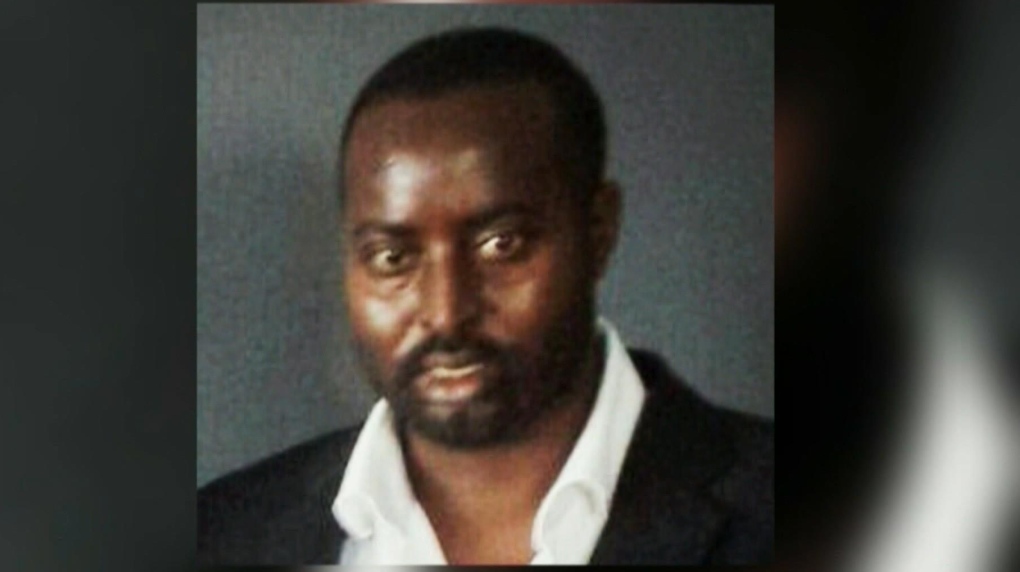‘We know we need to do more’: Ottawa Police Service addresses Abdi inquest findings
The Ottawa Police Service (OPS) says it is committed to repairing the “fractured relationships” it has with the local Somali community in the wake of the inquest into the death of Abdirahman Abdi more than eight years ago.
Abdi, 38, died in hospital a day after a violent arrest at the hands of Ottawa police on July 24, 2016. Officers had been called to a local coffee shop on reports Abdi had been groping patrons. During the arrest outside his Hilda Street apartment building, officers knocked him to the ground and struck him in the head several times.
 Still image from security camera footage of the violent arrest outside the apartment building where Abdirahman Abdi lived on Hilda Street.
Still image from security camera footage of the violent arrest outside the apartment building where Abdirahman Abdi lived on Hilda Street.
While the officer charged in connection Abdi’s death was acquitted in 2020, the 2024 coroner’s inquest into his death ruled it a homicide, a designation that is not legally binding, and made several recommendations to the Ottawa Police Service and others.
In a lengthy statement issued Thursday, the OPS said it is now in the process of reviewing those recommendations, but maintained it is committed to improving relationships with the community in the wake of Abdi’s death.
“With great empathy and respect for everyone involved, we remain committed to healing and restoring trust through continued dialogue, partnerships, and collective action, and moving our relationship forward,” the statement said, in part.
More than 2 dozen recommendations for police
The inquest jury made a total of 57 recommendations, including 25 to the Ottawa Police Service, three to the Ottawa Police Service Board, and three to the Ottawa Police Service and the Ontario Police College jointly, among other recommendations.
The primary recommendation to the OPS is to establish a mental health advisory council tasked with providing recommendations to the OPS relating to its interactions with members of the public with mental health issues and/or who are experiencing a mental health crisis. The inquest heard that Abdi appeared to be in a mental-health crisis at the time of his arrest. Other recommendations include directing mental health calls to the Alternate Neighbourhood Crisis Response (ANCHOR) program, when suitable, to consult with the community equity council on mandatory anti-Black racism training, and to review use-of-force and de-escalation policies.
“While we take the time to review all the recommendations, it’s clear that they provide valuable insights to help us become a better, more accountable police service. We are committed to learning from this inquest, improving our practices, and building trust with the communities we serve,” said Ottawa Police Chief Eric Stubbs in Thursday’s statement. “Mr. Abdi’s death has caused a lot of pain for his family, friends, and the community. Rebuilding our relationship with the Somali community is a priority for me and the OPS team. We are dedicated to taking concrete steps to address this through meaningful dialogue, genuine partnerships, and collective action.”
The OPS said it had made strides in addressing some of the concerns brought forward by jurors but acknowledged there was more work to be done.
“The inquest resulted in several jury recommendations aimed at improving police interactions with individuals experiencing mental health crises and addressing concerns of racism and the intersectionality of those issues,” the statement said. “We have undertaken much partnership work in this area, and we know we need to do more.”

The police service said Thursday it will assign dedicated resources to work with the Community Equity Council and other community partners to co-create a comprehensive mental health strategy that addresses the recommendations. It also said it is committed to continuing to work on its diversity, respect, inclusion, values, equity, and engagement strategies.
“The additional inquest recommendations and local action plans will be led by an Ottawa Police member who will ensure the development of an OPS mental health strategy with training improvements to build greater capacity. This important work will be aligned and integrated into our continuing human rights work that is reported to the Board every six months,” the OPS said.
Abdi’s family settled a civil lawsuit with Ottawa police in 2020, with an agreement that the OPS would implement a mental-health response strategy.
The inquest into Abdi’s death was mandatory under the law because Abdi was injured while in police custody. Its purpose was to examine the circumstances of his death, not assign blame.
“We deeply appreciate the hard work of the jury throughout the inquest, and in determining the recommendations. The OPS reaffirms its commitment to continue learning, evolving and collaborating with the community to ensure a safer, more equitable city for all,” Ottawa police said.
–With files from The Canadian Press
Read the full inquest verdict
View original article here Source









